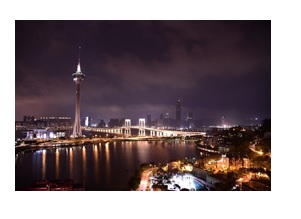Macau has become the biggest gambling destination in the world, outdoing Las Vegas several times over. From 2014 onwards, the expansion of Macau’s Cotai Strip was set to double the Chinese territory’s annual gaming revenues to $115 billion. That was a forecast laid down for 2017, but at the close of 2019, Macau looked to be on the decline.
Macau has been enjoying a two-year casino rebound in revenues, but that has been predicted to come to a grinding halt when the December 2019 numbers are released. Industry experts forecast a 16 percent monthly decline in December 2019 compared to December 2018, sinking to around $2.84 billion.
With the continuing rise in popularity of the extensive online casino industry, and with many predicting that this sector will only continue to innovate in 2020, it's an interesting predicament that Macau finds itself in. Gaming revenues have marked a stern downturn from a year ago, but what has caused the decline of Macau as a gambling destination, and can it bounce back?
VIP crackdown and the rise of the internet

Source: Pixabay
Macau sees thousands of guests arrive from China every single day, but the powerhouse behind its immense revenue numbers were the VIPs. To encourage more of these customers to visit, VIP junket operators would act as promoters, helping Macau maximize revenues from China’s wealthiest gamblers by offering perks, such as free accommodation and travel.
However, in 2016, China started to crack down on these practices, forcing the casinos in Macau to alter their focus from the VIP tables to the general public gaming floors. Changing who they focus on did help the district to rebound, but 2019 will most likely go down as the region’s fourth down-year over the last six years.
Forecasts, despite the 2019 Q4 decline, are showing an upturn in GDP annual growth rate percentage for 2020, of at least 1.8 percent.
The downturn has also been accredited to the vast increase of online casino gaming availability around the world. While Macau casinos most likely cannot ever rekindle to revenue streams that came via VIP junkets, they can embrace the digital space as opposed to it acting as a competitor.
Utilizing the internet instead of fearing it

Source: Pixabay
The online space has made casino gaming much more accessible to people around the world, culling some of the appeal of a gambling-centric destination such as Las Vegas and Macau. But, where Las Vegas has been able to earn global fame over many years, Macau is still a relatively new or unheard of destination for many people.
As is the case in eCommerce, having an online presence is key to giving people easy access to your offering, generating revenue, and greatly increasing brand awareness. This is already being done for Las Vegas, with an online offering of all of the games available in the city being playable at a website that dons the ‘Vegas’ brand.
With the website being available in New Zealand, Sin City is immediately being interacted with by a new audience, raising familiarity and making the destination more appealing due to their enjoyment on the website.
The same can be done for the casinos of Macau, with each brand (or the destination as a brand) offering many of its most popular games online around the world. It’d work as both a form of advertising, and it would also divert some of the lost revenues going to other online casino brands back to Macau.
Some savvy platform development, and intent of advertising Macau casinos and games, alongside the website’s offering, could see the online space become a great ally of the former Portuguese colony. Embracing the internet could increase the reach of Macau as a branded destination, as well as act as advertising and another revenue stream across the globe.

















